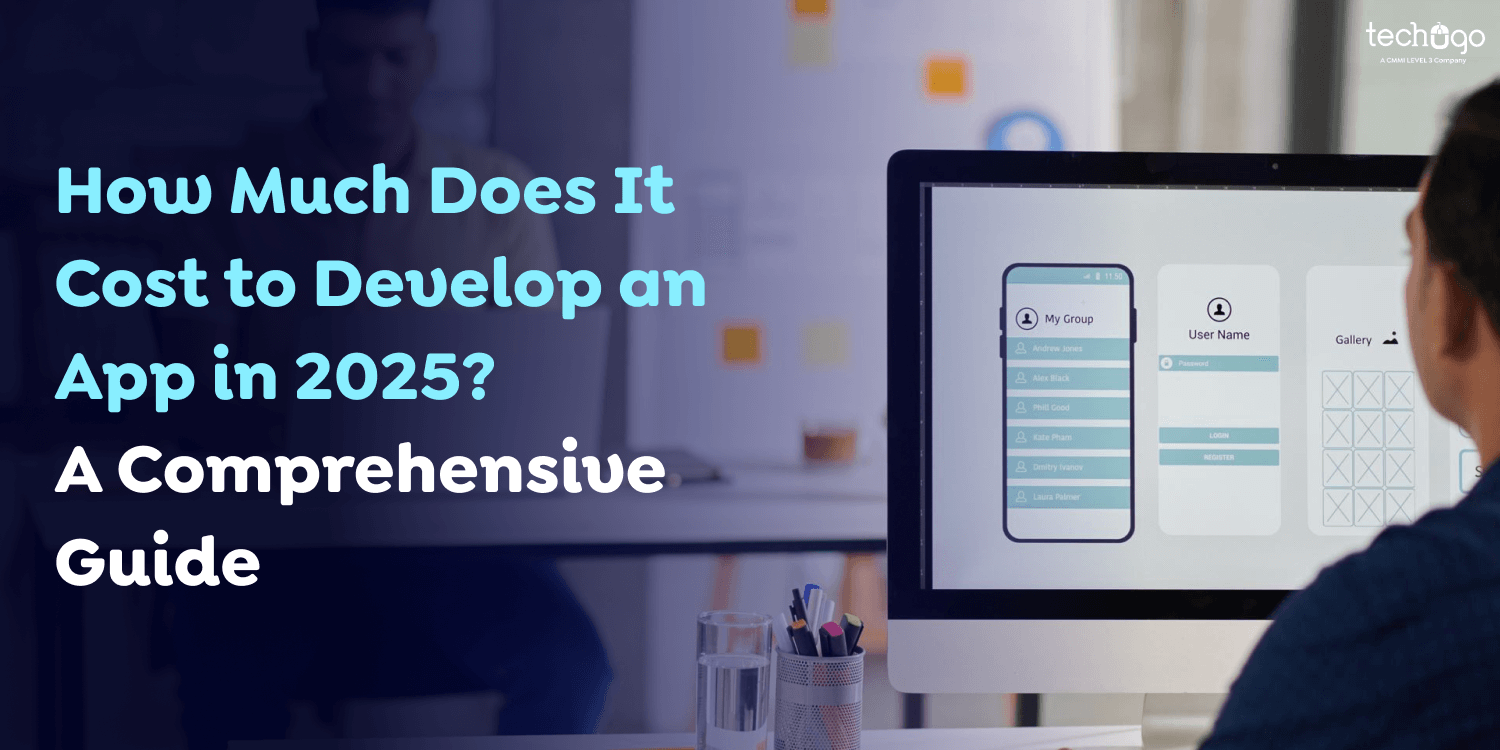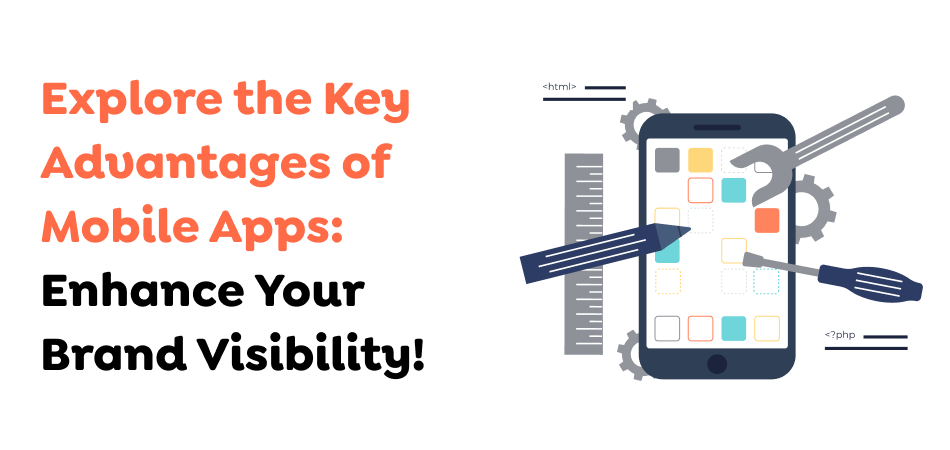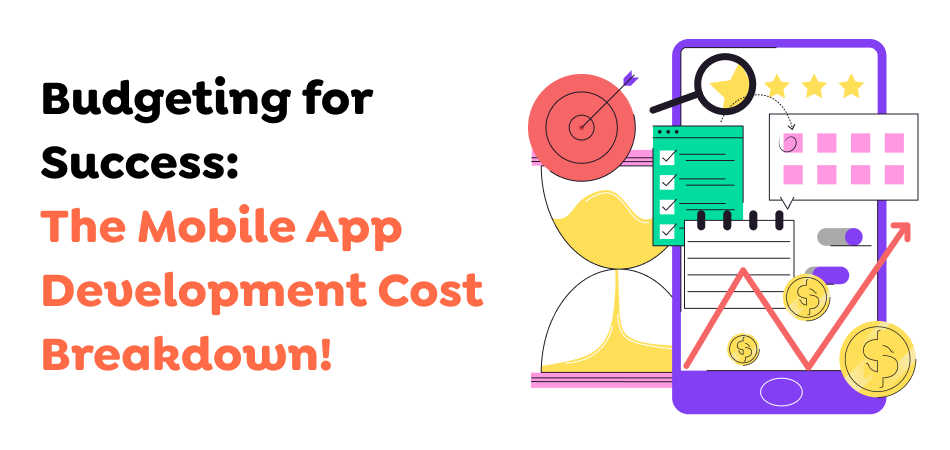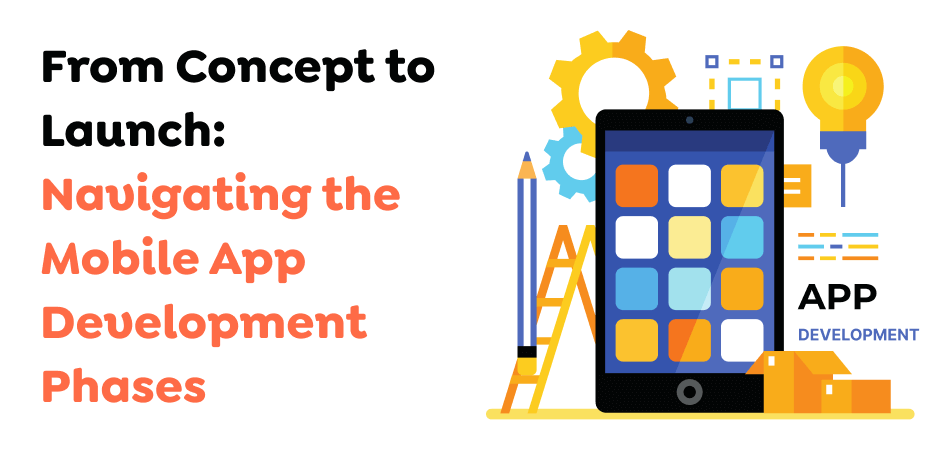13 Nov 2024
How Much Does It Cost to Develop an App in 2025? A Comprehensive Guide
Matthew Connor

Did you know the saying “There’s an app for everything”? It’s become increasingly popular with the rapid growth of app development trends. Today, mobile app development trends are growing faster than ever before. We have apps to meet every need. We can browse the Apple Store or Play Store. Despite the increase, it is not over, but there’s plenty of space for innovative and impactful mobile applications. In light of this, it’s no surprise that every online business invests in mobile app development. As we look ahead to 2025, the main question is how much it could cost to develop an app in Canada.
The cost of creating an app ranges from approximately $20,000 to $200,000. But, the cost can go as high as $350,000+ for more complex apps. It’s many estimations that are generalized. We have learned that there’s no definitive answer to this issue. They don’t require a fee. But, we can affirm that the price of developing and the quality of your product are in direct proportion. The remainder is contingent on many variables, which you must carefully consider to ensure success.
This guide will provide an extensive answer to the question and detailed information on the main aspects that affect app development costs.
So, let’s get started.
Advantages Of Mobile App Development For Businesses

As we move into 2025, creating a mobile app is more essential than ever for businesses aiming to deliver a fast, targeted experience on mobile devices. Apps offer valuable features like real-time alerts and location-based targeting that can significantly enhance customer engagement. With mobile usage only set to grow, a well-designed app can give your organization a competitive edge, boost brand loyalty, and drive growth in the digital landscape. Here’s why investing in app development for 2025 can prepare your business to thrive in the future.
1. Strengthen Your Brand
Over the long run, a well-designed app can help your customers save time because it gives them immediate access to what they want, which proves their trust in your company. Utilizing smart design and messaging is an ambassador for your brand, which is continuously operating. The app ensures that your customers receive an appropriate service when they need it, which helps you maintain your promise to customers.
2. Improved Connection With Customers
Applications allow you to stay connected with customers when they are on the move. They can receive notifications regarding sales or brand-new items to keep them interested. This is an excellent method to keep them in your minds, even if they’re not focused on the brand. Utilizing features like location-targeting, it is possible to contact customers when they’re near your retail store, should you own one.
3. Improving Customer Engagement
People spend much more time on apps than on mobile sites, making apps more enjoyable. This means you’ll have a better chance of connecting with those in the appropriate time frame since they will choose to download your application. Your app could provide different options for users to engage with your company. You can let your customers save their favorites or even create shopping lists if you sell items.
4. Providing Value To Customers
In a market where firms compete for attention from customers and attention, it’s important to give worth every opportunity you have. A mobile app could provide customers with a unique shopping experience. It could be possible to offer virtual trial capabilities for your clothes collection or streamline the management of subscriptions for customers who are B2B.
The ability to make your product or service more accessible to customers makes them more inclined to purchase from your business. Remember that your app has to provide more than your product’s contact form or listing. Customers who are already customers expect ease of use. However, the application should also offer something unique that is unavailable elsewhere.
5. Facilitates New Client Data Retrieval
Adding forms and surveys to the customized app will help you collect the required client information. This method is also discrete and reduces employees’ and clients’ time because they don’t need to submit documents physically.
6. Provides Real-time Project Access
On the road, accessing all of your work files proves beneficial. A custom app designed specifically for your company allows you to easily sync your smartphone with your computer and gain access to everything your work-related documents, including calendars, task lists, and other documents. Contract documents and brochures that could be distributed to customers can be accessible using customized business applications.
7. Improving Customer Loyalty
Loyalty programs are an excellent strategy for building customer loyalty. Most consumers believe they are more likely to stay with brands with loyalty programs, and many have reported spending more money due to these programs. Instead of using the traditional punch card, many businesses now use apps to make handling loyalty programs easier.
8. Boosting Profits
Mobile applications benefit businesses and customers by improving the user experience overall, which usually results in higher profits. As apps help improve customer experience, marketing campaigns will likely be more efficient. By engaging customers, offering loyalty programs, and adding other value to your marketing, the cost of advertising may decrease while conversion rates rise.
Also Read : How Much Does It Cost to Build an App Like Flipp?
Average Mobile App Development Cost

In simple terms, the estimated costs for creating a mobile app can vary between $25,000 to $300,000. This is especially true for customized, complicated applications. The cost to develop an app in Canada is contingent on various elements, including the application’s complexity, functions and features, design approach, and more. Understanding these factors is crucial for businesses looking to budget effectively for their app development projects.
1. Simple App Development Cost
Some apps with essential functions include user profiles, push notifications, and navigation. They also have a simple user interface and minimal content display. The development process for these apps takes 2-3 months to finish. A simple app development expense can range from $40,000 to $120,000.
2. Medium App Development Cost
Medium-sized apps can be more challenging to develop because they have advanced functionality, interactive elements, and lots of information. Some examples include social media apps, e-commerce applications, fitness trackers, and online learning applications. App development costs run between $120,000 and $200,000.
3. Complex App Development Cost
Complex software includes the ability to respond quickly, a wide range of search capabilities, and third-party integrations, thus indicating a higher level of complexity. For example, the costs will be higher if a healthcare organization chooses to switch away from a pre-packaged EHR/EMR solution and build a custom one. App development costs range between $200,000 and $300,000 plus.
Also Read : How Much Will It Cost to Develop a Weight Loss App Like Noom?
Factors That Impact The Cost Of Mobile App Development 2025

Many variables determine the final cost to develop an app in Canada, including the application’s complexity, features, and functions, all of which significantly affect the total mobile application development cost.
1. Mobile App Complexity
The essential elements you must be aware of when estimating the price for the basic application are user-facing features such as login options, creating profiles, modest management, and a profile feature. The more complex application requires additional features such as app advertising, user engagement, social media integration security for users, streaming audio/video, and payment gateways.
Complex apps require advanced technologies, such as AR/VR, AI, machine learning, and AR/VR. Other features of the complex applications are support for multiple languages and top-of-the-line information. Simple apps cost between $5k – $50k. A medium-complex application is between $50,000 and $120,000. Complex apps can cost up to $300,000 or more.
2. Features And Functions Of The App
Apart from app complexity, app capabilities and features are a significant factor in determining app costs. Every new feature adds to the costs of developing an app. So, it’s best to focus on only the essential features in the first version for mobile application development. This can provide a superior user experience with the least amount of price. A better option is to create an MVP with essential functions. This helps you gain customer feedback for the cheapest price and saves time.
3. App Design & Animation
When creating mobile apps, the design and animations significantly impact the price. The best app design will give customers the most incredible user experience, encouraging people to stay with your app longer. Your apps can be designed using an ordinary UI or a custom user interface. React Native app development company states that custom-designed UI will take more time and be costly, but it could improve conversion rates by up to 30%. Wireframes and animation are significant factors in determining the cost to develop an app in Canada.
4. App Category
The cost to develop an app in Canada varies depending on its category. Many aspects change due to changing categories, such as functionalities and the number of users, which can raise or reduce the price of app development. Security options also evolve depending on the app type and can increase the app’s development costs.
Let’s take a glance at the top areas of developing mobile apps.
- E-commerce Applications: The E-commerce application is highly rated since it offers many functions and works as well as it can in real-time. Many features allow it to provide the highest real-time efficiency while managing millions of customers with robust security measures.
- Social Networking Applications: Apps for social media require third-party integrations that allow access to physical functions such as cameras, audio and video phones, smartphone sensors, etc. They require constant assistance to support millions, if not billions, of users, which is why social media applications will cost more than category-specific apps.
- On-Demand Applications: On-demand applications can have many users. Uber, for instance, is an application that includes drivers, customers, and businesses that act as customers. It’s a mobile or web-based service that lets users quickly receive and schedule services and instantly purchase products from one particular company. Also, it can compare offers with various on-demand companies to assist users with making the right choices.
5. App Maintenance
Indeed, expenses must be cut off in the final stage of mobile app development. Businesses must keep updating their applications to stay current with market developments, new devices, and OS releases, which comes at a cost. What is your budget after the development of your app?
- Bug fixes: There’s no issue with a bug-free mobile application. Most of the time, bugs are identified after launching the app. It is essential to keep an eye out for corrections to bugs.
- Design Change: App design is the only mobile application element prone to aging and ceasing to engage customers. A company must prevent its designs from becoming outdated to maintain its users’ interest.
Understanding the cost to develop an app in Canada is crucial for planning budgets and strategic plans. When an app is developed, ongoing expenses must be considered. Maintenance costs for apps like this are estimated annually at 20% of the total mobile app development costs.
6. Location And Size Of The Development Team
The complete mobile app cost depends on which Flutter app development company you pick. Here are various options: an experienced customized mobile app development firm within Canada and other local teams, in-house development staff, or a freelance developer. A professional mobile app development firm is an excellent option for your app for business in creating superior applications with high-end features and functions.
Also Read : How Much Does It Cost to Create a Commercial Real Estate App like Zillow?
Hidden Factors Impacting Development Cost Of Mobile Apps
Although creating your mobile app can be an exhilarating project that brings your concepts beyond the confines of your lab and into the hands of users. Many app developers are guilty of not considering the total cost when bringing an app into reality and neglecting the many costs that follow its first creation. The “hidden expenses of application development” can quickly accumulate and increase overall costs. Find out more about these costs.
1. Quality Security
The business must hire Quality assurance specialists for small apps and a project manager when the app is significant. A business analyst must reduce the expenses of developing the app and incorporate them into the budget.
They know the intricacies of an app’s development and can manage it more effectively. Testers and business analysts play an essential role in quality assurance. Project managers assist in managing the task.
2. Costs Of Infrastructure
App development also involves paying for data storage, app hosting, and data delivery. These comprise the costs for infrastructure, which affect the project’s price and extent. The most expensive mobile app infrastructure components include servers, data storage, development libraries, and tools.
3. Marketing Cost
If we are talking about marketing expenses, it’s what you invest in making your mobile application known to those who are hoping to get it used. The ideal marketing budget for your app’s development should equal X2-X3 of the first development costs. If the application development costs are $100,000, it is recommended to set aside anywhere between $300,000 and $200,000 in your annual marketing budget.
4. Costs For App Publishing
Each Google Play and Apple App Store requires an upfront annual cost for app publishing. Google offers a $25 once-off fee for releasing the app. However, you must be able to pay a monthly payment of $99 to launch an app to the Apple App Store.
5. IT Support Expenses
Unsurprisingly, IT assistance and a technical support team are crucial to the app’s successful development. But the cost of support could grow over time. Support services for IT include iOS and Android updates, API maintenance, and bug fixes.
6. App Security
App security is among many, if not the foremost, essential factors to consider when choosing the price of app development. If an enterprise plans to invest in app security from the beginning, this will come at a lower cost for the app. If it cannot achieve this, app security will be more expensive for businesses.
Also Read : How does React Native contribute to reducing mobile app development costs?
Mobile App Development Process

The development of mobile apps has become extremely popular recently. Making a quality mobile application is no easy job because it takes an efficient process and could be challenging for those unfamiliar with the development process.
1. Find Out About The Market You Want To Target
If you plan to develop applications, ensure that you research and discover information regarding your market. If you study the audience and understand what customers are doing with your company, who the top competitors are, and more. Additionally, it is essential to review the various software to aid in developing an improved product.
2. Select The Best Platform
Companies can select platforms such as iOS and Android or cross-platform alternatives. If your business is starting and has little money, you must begin by choosing only one platform. In the future, if you’re successful in your endeavor, you should consider a variety of platforms.
3. Hire An App Development Company
Engaging a reputable Android app development company will ensure your app has modern and cutting-edge capabilities and features. Additionally, they will ensure that the business meets timeframes that meet their goals and targets. They also can provide businesses with valuable suggestions. They also can help leverage your company’s knowledge with their experience and the latest technology.
4. Build MVP
Although a well-designed app has numerous capabilities and features, enterprises must first focus on creating a minimum feasible prototype (MVP). An MVP can help gather user feedback, which will help companies enhance their apps and save time while making the final version with the full range of features and functions.
5. App Testing
The app must be tested to ensure that test case tests are written before it is launched. Once design begins, the app is tested at each step before development. This helps reduce costs and allows firms to launch their applications with minimum effort because the test is completed before the development work.
6. Launch And Monitor Performances
Once the app has been released, companies can utilize mobile analytics apps to analyze its performance regularly. Regular updates, bug fixes, and patches can guarantee optimal app performance, ultimately improving customer engagement.
It’s the typical method of developing an app. If an organization engages a mobile app development firm, they’ll take care of the entire development process, and business owners can offer suggestions to the team throughout the process.
How Do Apps Make Money?
With millions of apps being distributed worldwide (and expanding), ensuring you have the best way to make money from your app is essential. Although not all apps are designed to generate revenue, even the most basic applications can have a couple of efficient monetization methods that they can use.
For example, whether placing a modest advertisement in a banner on a calculator application or providing paid premium subscriptions to an advanced application for health monitoring, various apps can earn money. Here’s a look at the most well-known revenue sources of apps you could utilize to generate more income through the application.
1. Advertising
It is the most well-known technique for monetizing apps. iOS app development company promote the products and services of third parties through their apps at a specific sum. The app’s popularity determines the price that the app’s owner can charge the third-party companies for which they’re marketing.
2. Freemium
Freemium models are an approach to monetizing app features that allow users access to fundamental features without paying an amount or additional features for a fee. Freemium models work well in internet-based businesses with low charges for customer acquisition but higher than a lifetime worth.
3. Sponsorship
A person who owns an app can search for sponsors within their niche for whom they could offer a payment plan. As a reward, the app owner could display the sponsor’s logo or even let them promote their brand via the application.
4. Subscription
App owners can choose a subscription-based model where users pay to access the app’s well-known features. Depending on the app owner’s preference, the subscription could be monthly, annually, or even two years. Both Google and Apple platforms let users control their subscriptions from the app.
Tips To Reduce Your Mobile App Development Costs
The good news is that entrepreneurs and business owners can reduce the cost of making mobile apps by heeding industry best practices and applying helpful tricks. In this section, we’ll examine strategies that firms can use to reduce the cost of custom app development.
1. Internal Or External Outsourcing
The choice of Mobile app development staffing structure is crucial to the project’s planning. Your decision-making process will impact the project’s cost, workflow structures, and maintenance strategy. The most important issue is which option to choose: outsourcing or internal development.
Outsourcing refers to hiring an existing team to handle your development. By outsourcing the process of developing your app, IT-related consulting firms can access an impressive pool of talent to select from. This also lets you reduce office and equipment costs and the internal workflow.
2. Make Sure To First Prioritize Important Features
While developing an app, it’s essential to rank your features properly. It’s an effective strategy to focus on the functionality of your application to start creating business value as fast as possible. These are nice-to-have features for later levels of the development process. Developing a minimum viable product (MVP) at first is recommended.
3. Participate In The Early Stages Of Quality Control
Because your app is susceptible to mistakes and bugs and errors, it is essential to fix these issues as quickly as possible. Involving QA experts at the start can spot severe difficulties and problems before the beginning of development. Ultimately, you can save an enormous amount of money that could be very costly at the end of the project.
4. Create a Plan For The Future
The application you’ve built today could be completely different shortly. For instance, you may develop an MVP and alter some features based on user comments. Your target market could change in a new direction, forcing you to adjust how you market your products. This is why it’s essential to consider long- and short-term objectives when designing an app. This will help you save a lot of money in the long run.
5. Consider Cross-Platform Development
Each entrepreneur who launches an app must decide whether it should be launched exclusively for Android, iOS, or both. Making native apps for all three platforms will not be cost-effective. If you develop an application only for one platform, you could miss the opportunity to reach a significant portion of users on the alternative platform. It is best to build cross-platform apps that work across both platforms.
Conclusion
Creating an app in 2025 can be an intelligent investment that boosts the company’s brand visibility, client retention, and overall performance. Various factors influence the cost of developing an app in Canada. Businesses can grasp the nuances of creating an app for mobile devices and develop top-quality, user-friendly applications that meet their needs and budget.
Developing a mobile app requires looking at features, designs, and platforms, all impacting costs and complexity. Be aware of hidden fees, how they source their material, and the services they can provide following the development. If you still feel that finding the total costs of app development is a challenge, consult a trustworthy app development firm like Techugo.
Get in touch with us today to discuss your mobile app development needs and discover how we can help you bring your vision to life!
Get In touch
We are excited to here from you and let’s start something special Together. Call Us for any inquiry.
Write us
sales@techugo.caJust a call away
About you




